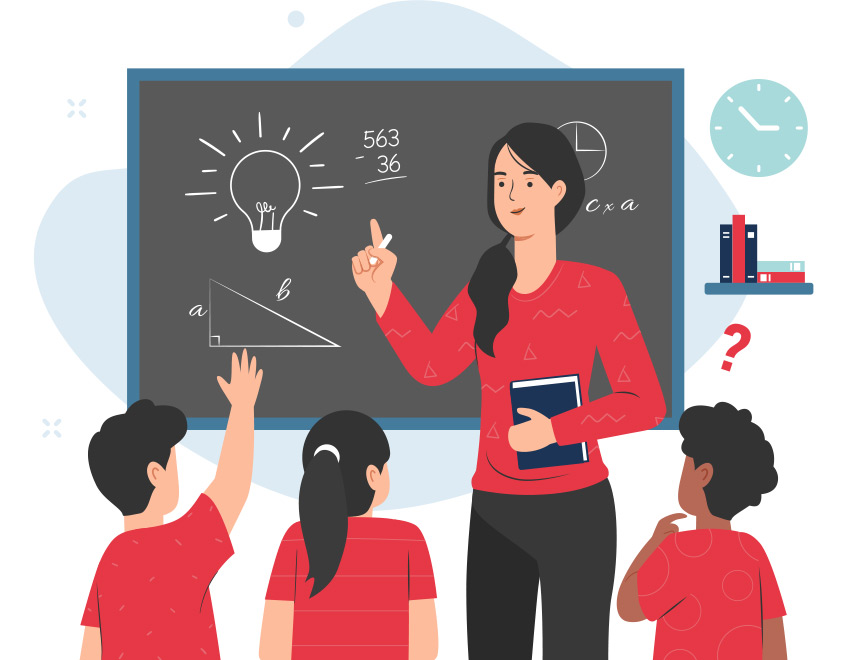Affordable Primary Science Tuition Singapore for All Learning Needs
Affordable Primary Science Tuition Singapore for All Learning Needs
Blog Article
A Comprehensive Guide to the Numerous Knowing Approaches in Key Science Direction
The expedition of varied learning techniques in primary scientific research direction provides a chance for educators to boost student interaction and comprehension significantly. By analyzing hands-on understanding strategies, inquiry-based approaches, and joint strategies, we can recognize reliable practices that cater to different finding out designs.

Hands-On Discovering Strategies
Hands-on understanding techniques play an essential role in key science guideline, engaging students in active exploration and trial and error. These methods enable learners to engage directly with products and sensations, fostering a much deeper understanding of clinical principles. By utilizing manipulatives, models, and real-life experiments, educators develop a setting where pupils can observe, assume, and evaluate their ideas.
Such methods not just boost comprehension however likewise grow vital thinking and problem-solving skills. When pupils take part in tasks like building straightforward makers, planting seeds, or conducting chain reactions, they are motivated to ask questions and seek responses with their own monitorings. This experiential strategy aids to debunk complicated scientific concepts, making them more available and relatable.
Moreover, hands-on discovering advertises collaboration among peers, as pupils often function in groups to perform experiments or share findings. This synergy not just enhances their learning experience but also develops crucial social abilities. Ultimately, integrating hands-on methods in main scientific research instruction promotes a long-lasting love of understanding and inquisitiveness about the all-natural world, laying a solid foundation for future scholastic pursuits in science and past.
Inquiry-Based Discovering
Inquiry-based learning is an educational approach that encourages pupils to ask concerns, investigate sensations, and create their very own understanding of scientific principles. This method moves the focus from typical teacher-led direction to a much more student-centered experience, where learners take the initiative in their educational trip. By fostering curiosity, inquiry-based understanding advertises much deeper engagement with the material, enabling trainees to discover subjects in a purposeful context.
In practice, this approach commonly involves hands-on experiments, observations, and crucial reasoning tasks that align carefully with the scientific method. Students are encouraged to formulate theories, style investigations, and examine data, which cultivates essential abilities such as logical and problem-solving thinking. The duty of the instructor in this structure is to facilitate exploration, guiding students through the query process while motivating independent thought and partnership.
Furthermore, inquiry-based knowing nurtures a sense of possession over the discovering procedure, motivating students to seek understanding proactively. This method not just improves understanding of clinical principles but likewise promotes a long-lasting love for learning, furnishing pupils with the skills needed to navigate an increasingly intricate world.
Collaborative Learning Approaches
Joint knowing approaches encourage trainees to take part in significant communications with peers, fostering a shared responsibility for their educational end results. In key scientific research instruction, these approaches motivate learners to collaborate to check out scientific ideas, fix issues, and conduct experiments (primary science tuition Singapore). By taking part in group tasks, students can leverage diverse viewpoints, permitting richer understanding and retention of clinical understanding
One key aspect of joint discovering is the focus on communication abilities. Trainees must articulate their ideas, listen actively to others, and discuss concepts, all of which are critical competencies in both academic and real-world contexts. This social communication not just boosts their understanding of scientific concepts however also advertises synergy and conflict resolution abilities.
Additionally, joint understanding usually leads to boosted motivation and interaction. They are more likely to take ownership of their knowing journey when pupils see the worth of their contributions within a team. Teachers can facilitate this procedure by creating organized group jobs that straighten with curriculum objectives while providing support on efficient collaboration strategies. Generally, including collective understanding strategies in key science direction grows a dynamic understanding atmosphere that prepares trainees for future scholastic and social challenges.
Innovation Integration in Scientific Research
The assimilation of innovation in main science guideline boosts finding out experiences by supplying cutting-edge tools and resources that sustain various training techniques, including collective learning - primary science tuition Singapore. Using digital systems, simulations, and interactive applications enables pupils to involve deeply with clinical principles, promoting an extra hands-on strategy to understanding
Online laboratories, as an example, enable students to carry out experiments safely and efficiently, promoting inquiry-based understanding. These devices can simulate real-world scientific situations, enabling trainees to visualize complicated processes that would certainly be tough to reproduce in a standard class setting. In addition, technology cultivates interaction and partnership amongst pupils, as they can share searchings for and work with each other on jobs through online platforms.
Furthermore, multimedia presentations and academic video clips can enrich lessons by satisfying varied learning styles, making abstract principles extra accessible. Information content evaluation devices additionally encourage students to collect and interpret clinical information, reinforcing essential thinking skills. Generally, the tactical incorporation of innovation in key scientific research direction not just enhances interaction however likewise prepares students for a highly innovative culture, furnishing them with important skills for future clinical undertakings.
Separated Instruction Methods
Set apart direction techniques are necessary for attending to the diverse demands of students in main science education. These techniques make it possible for teachers to customize their training approaches to accommodate differing capacities, rate of interests, and discovering styles within the class. By using differentiated direction, teachers can produce an inclusive environment that promotes engagement and enhances understanding of clinical concepts.
One efficient technique is to use versatile grouping, which permits pupils to work together with peers at similar ability levels or with differing viewpoints. This technique look at this now motivates peer learning and advertises essential reasoning. Additionally, offering options in projects can encourage trainees, allowing them to pick jobs that resonate with their passions while still fulfilling curricular objectives.
In addition, integrating tiered assignments is an additional important strategy. By creating tasks with differing levels of complexity, educators can make certain that all trainees are appropriately tested, regardless of their proficiency. Making use of developmental assessments to determine comprehending further allows teachers to readjust their educational techniques dynamically, guaranteeing that each learner obtains the assistance they need.
Inevitably, applying distinguished instruction strategies in main science education and learning not only enhances pupil learning end results however additionally cultivates a passion for scientific research, preparing trainees for future scholastic pursuits.

Final Thought
In summary, reliable main scientific research instruction demands a multifaceted strategy that encompasses hands-on discovering, inquiry-based methods, and collective strategies. The integration of modern technology and differentiated guideline further caters to varied knowing designs, cultivating an environment favorable to expedition and vital reasoning.
The exploration of varied learning methods in main scientific research instruction provides a possibility for instructors to enhance trainee interaction and understanding significantly.Hands-on knowing strategies play a pivotal role in discover here main scientific research guideline, engaging students in active exploration and testing.Inquiry-based understanding is an educational approach that encourages students to ask concerns, examine sensations, and construct their own understanding of clinical ideas.Collective discovering strategies encourage pupils to involve in purposeful interactions with peers, fostering a shared obligation for their academic results. On the whole, including joint understanding approaches in key scientific research direction grows a vibrant understanding environment that prepares pupils for future scholastic and social obstacles.
Report this page